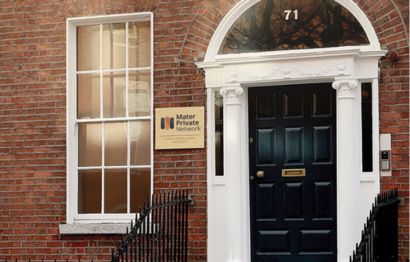4th June 2025
How to check your pulse
Regular pulse checks could set you on a path of improving your heart health. In some cases, it could even save your life. By taking 30 seconds out of your day to check your pulse and count your heart beats, you may detect an abnormal heart rate or irregular heart rhythm

What is an irregular heart rhythm?
Arrhythmia is the medical term used to describe an irregular rhythm of the heart. The type and severity of the rhythm problem can vary. Your heart may beat too slowly, too quickly, or irregularly. These abnormalities range from a minor inconvenience or discomfort to a potentially life-threatening problem.
Atrial fibrillation is the most common arrhythmia. This is when your heart beats in a disorganised and irregular way. It can lead to a range of symptoms and potential complications including heart failure or stroke. It can affect adults of any age, but it is more common as you get older. One in four people over the age of 50 are at risk of developing atrial fibrillation.
When should I check my pulse?
You should check your pulse every day, at the same time when you are relaxed. A good time is before getting out of bed or while relaxing in the evening.
Why should I check my pulse?
The goal of checking your pulse is to count your heart beats per minute and identify any abnormalities.
Atrial Fibrillation Institute
Established in 2020, the Atrial Fibrillation Institute at Mater Private Dublin is a full-time, dedicated centre of excellence providing access to advanced therapies and multidisciplinary care for the treatment of atrial fibrillation.
Learn more
How do I check my pulse?
Before taking your pulse, find a comfortable position and lay your arm on a flat surface with your elbow bent.
It is best to avoid any stimulants like coffee or nicotine before taking your pulse. The most common place to check your pulse is on your wrist. If you wear a watch, remove it from your wrist before starting to check.
Use your fingers to find your pulse on your wrist and count the beats for 30 seconds and multiply the number of beats by two to get your beats per minute. A normal pulse should be between 60 to 100 beats per minute (bpm). If your pulse is irregular, count the beats for 60 seconds and do not multiply it.
Take a look at our video for a demonstration about how to check your pulse.
When should I seek advice?
Everyone is different, but if your pulse is 120 bpm or above, or 40 bpm or below, please contact your doctor for further investigation.
You should also contact your doctor if your pulse is:
- Fast and racing some or most of the time and you feel unwell
- Slow some or most of the time and you feel unwell
- Beating in an irregular rhythm
If you are experiencing chest pain, palpitations or breathlessness, Urgent Cardiac Care at Mater Private Network is available 24 hours a day, seven days a week without the need for a GP referral in our Dublin hospital. Call 1800 247 999.
Urgent Cardiac Care at Mater Private Network Cork is available Monday to Friday, 8am to 8pm. A GP referral and appointment is required. Call 021 601 3326.










.jpg?sfvrsn=7fee3fb7_1)

